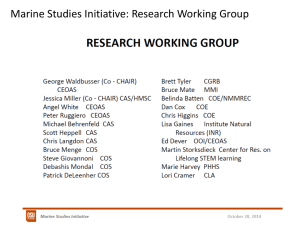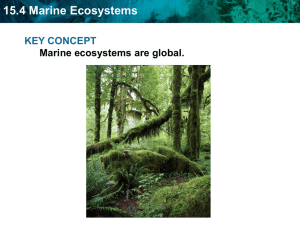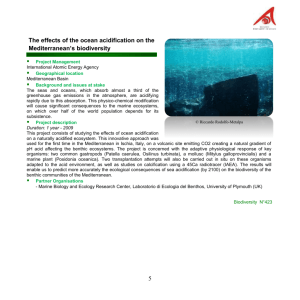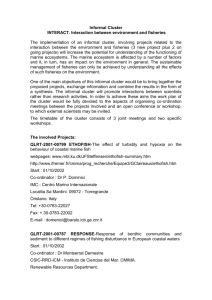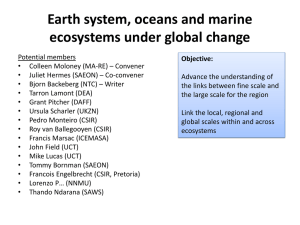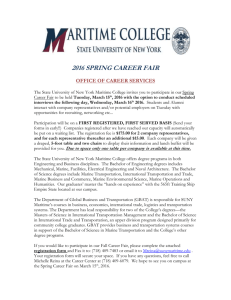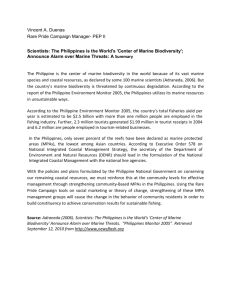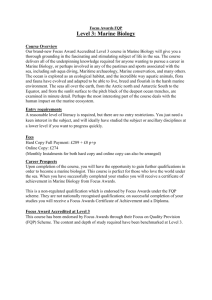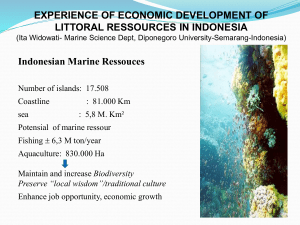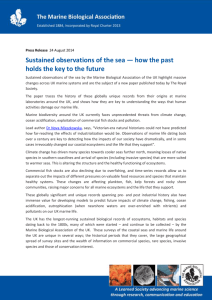Objectives and Summary of IMPACTS
advertisement
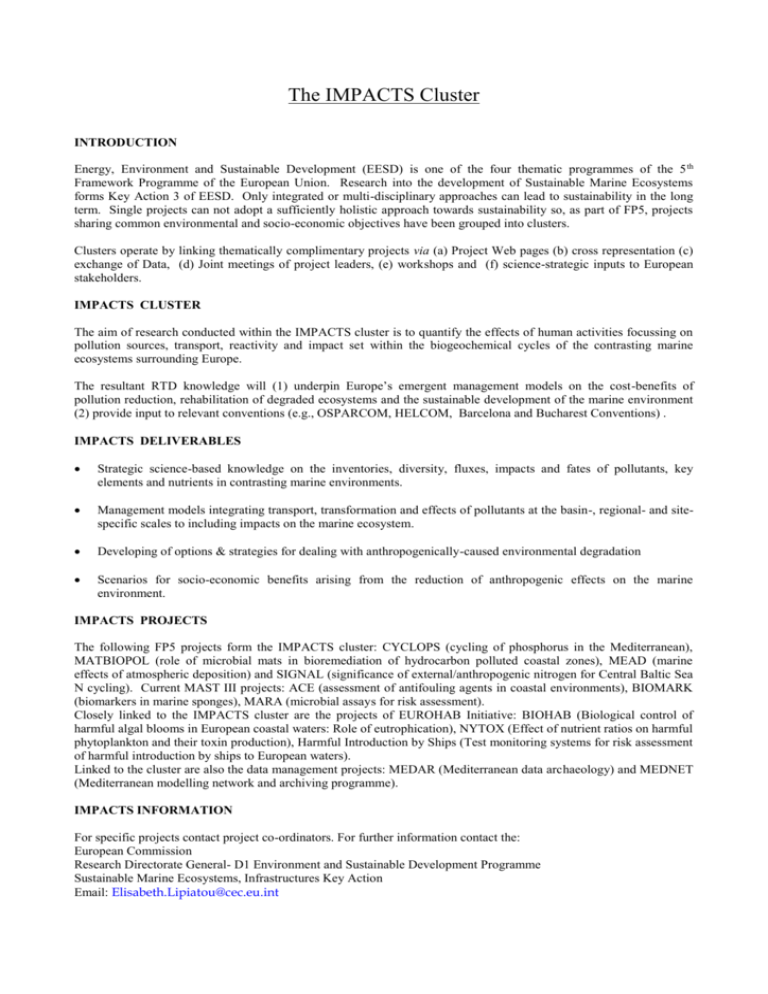
The IMPACTS Cluster INTRODUCTION Energy, Environment and Sustainable Development (EESD) is one of the four thematic programmes of the 5 th Framework Programme of the European Union. Research into the development of Sustainable Marine Ecosystems forms Key Action 3 of EESD. Only integrated or multi-disciplinary approaches can lead to sustainability in the long term. Single projects can not adopt a sufficiently holistic approach towards sustainability so, as part of FP5, projects sharing common environmental and socio-economic objectives have been grouped into clusters. Clusters operate by linking thematically complimentary projects via (a) Project Web pages (b) cross representation (c) exchange of Data, (d) Joint meetings of project leaders, (e) workshops and (f) science-strategic inputs to European stakeholders. IMPACTS CLUSTER The aim of research conducted within the IMPACTS cluster is to quantify the effects of human activities focussing on pollution sources, transport, reactivity and impact set within the biogeochemical cycles of the contrasting marine ecosystems surrounding Europe. The resultant RTD knowledge will (1) underpin Europe’s emergent management models on the cost-benefits of pollution reduction, rehabilitation of degraded ecosystems and the sustainable development of the marine environment (2) provide input to relevant conventions (e.g., OSPARCOM, HELCOM, Barcelona and Bucharest Conventions) . IMPACTS DELIVERABLES Strategic science-based knowledge on the inventories, diversity, fluxes, impacts and fates of pollutants, key elements and nutrients in contrasting marine environments. Management models integrating transport, transformation and effects of pollutants at the basin-, regional- and sitespecific scales to including impacts on the marine ecosystem. Developing of options & strategies for dealing with anthropogenically-caused environmental degradation Scenarios for socio-economic benefits arising from the reduction of anthropogenic effects on the marine environment. IMPACTS PROJECTS The following FP5 projects form the IMPACTS cluster: CYCLOPS (cycling of phosphorus in the Mediterranean), MATBIOPOL (role of microbial mats in bioremediation of hydrocarbon polluted coastal zones), MEAD (marine effects of atmospheric deposition) and SIGNAL (significance of external/anthropogenic nitrogen for Central Baltic Sea N cycling). Current MAST III projects: ACE (assessment of antifouling agents in coastal environments), BIOMARK (biomarkers in marine sponges), MARA (microbial assays for risk assessment). Closely linked to the IMPACTS cluster are the projects of EUROHAB Initiative: BIOHAB (Biological control of harmful algal blooms in European coastal waters: Role of eutrophication), NYTOX (Effect of nutrient ratios on harmful phytoplankton and their toxin production), Harmful Introduction by Ships (Test monitoring systems for risk assessment of harmful introduction by ships to European waters). Linked to the cluster are also the data management projects: MEDAR (Mediterranean data archaeology) and MEDNET (Mediterranean modelling network and archiving programme). IMPACTS INFORMATION For specific projects contact project co-ordinators. For further information contact the: European Commission Research Directorate General- D1 Environment and Sustainable Development Programme Sustainable Marine Ecosystems, Infrastructures Key Action Email: Elisabeth.Lipiatou@cec.eu.int

